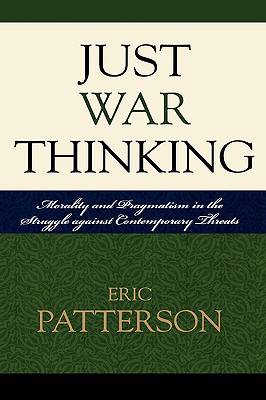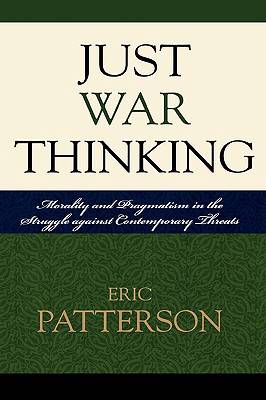
- Afhalen na 1 uur in een winkel met voorraad
- Gratis thuislevering in België vanaf € 30
- Ruim aanbod met 7 miljoen producten
- Afhalen na 1 uur in een winkel met voorraad
- Gratis thuislevering in België vanaf € 30
- Ruim aanbod met 7 miljoen producten
Zoeken
Just War Thinking
Morality and Pragmatism in the Struggle against Contemporary Threats
Eric Patterson
Hardcover | Engels
€ 172,45
+ 344 punten
Uitvoering
Omschrijving
Just War Thinking reconsiders the intersection between morality and pragmatics in foreign policy and modern warfare. The book argues that a political ethic of responsibility should motivate the contemporary application of military force by states in order to protect international security and human life, considering the challenges posed by today's new wars: targeted killing, humanitarian intervention, terrorism, jus post bellum, and the influences of public opinion and supranational institutions.
Specificaties
Betrokkenen
- Auteur(s):
- Uitgeverij:
Inhoud
- Aantal bladzijden:
- 142
- Taal:
- Engels
Eigenschappen
- Productcode (EAN):
- 9780739119006
- Verschijningsdatum:
- 1/11/2007
- Uitvoering:
- Hardcover
- Formaat:
- Genaaid
- Afmetingen:
- 161 mm x 233 mm
- Gewicht:
- 335 g

Alleen bij Standaard Boekhandel
+ 344 punten op je klantenkaart van Standaard Boekhandel
Beoordelingen
We publiceren alleen reviews die voldoen aan de voorwaarden voor reviews. Bekijk onze voorwaarden voor reviews.











